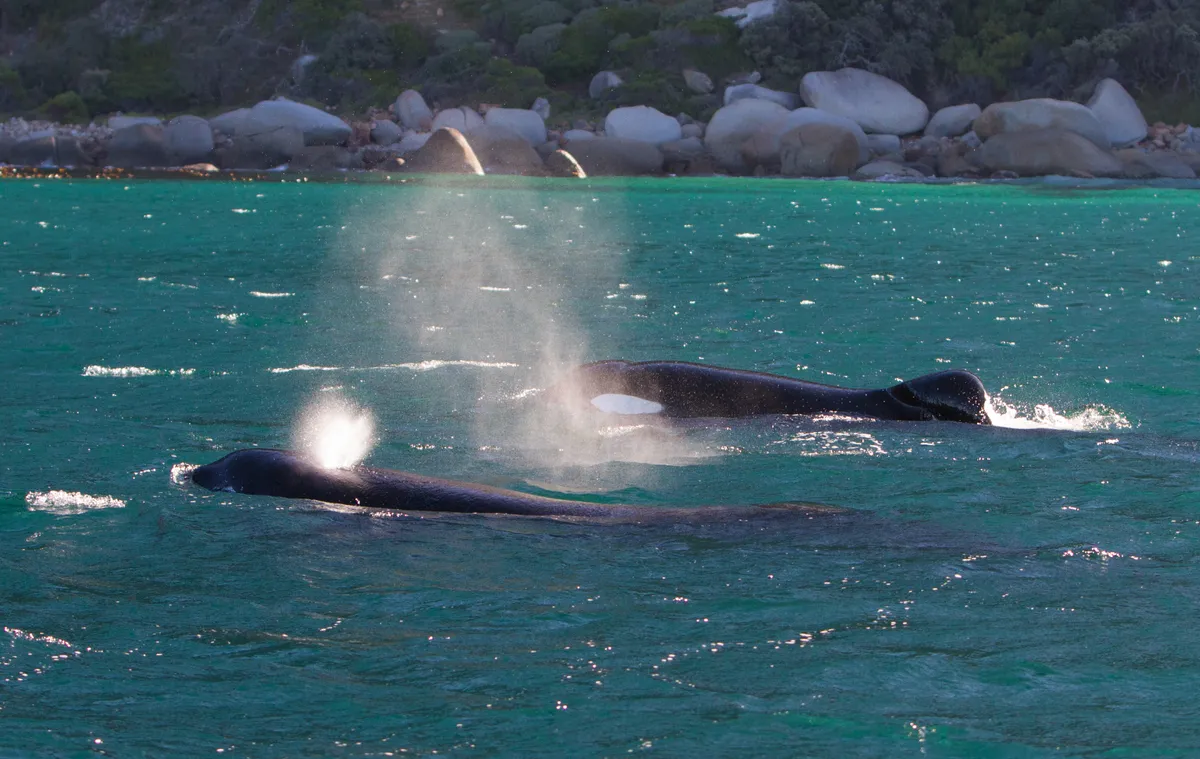Great white sharks (known simply as white sharks by scientists) and orcas are both apex predators, able to kill many other creatures, but rarely attacked themselves.
However, video footage and surveys from a South African study published in Ecology suggest orcas are the topmost seagoing predator of all – and that white sharks are well aware of that danger.
“We had all the pieces of evidence pointing to the fact that orcas were preying on white sharks,” says lead author Alison Towner, a marine biologist and PhD candidate at Rhodes University. “But we were not quite sure of the hunting strategies the orcas used, nor how the sharks initially responded.”
Previous clues included white shark carcasses with their livers missing, washed ashore on the Western Cape in recent years.
“Tagged white sharks also vanished from key coastal aggregation sites,” says Towner, possibly to avoid predation by the orcas.
This parallels what happened in 1997 around the Farallon Islands, off San Francisco, when whale-watching tourists saw two orcas kill a white shark and eat its huge, fat-rich liver.
Twenty years later, when white shark carcasses started to be found in South Africa, researchers suspected that another orca duo was implicated. This deadly couple, named Port and Starboard, had already been seen attacking smaller species of shark.

But the new video footage, captured from both drone and helicopter, shows a white shark trying to evade capture from a group of five orcas. At first, it circles a would-be attacker, which has made a slow, close approach.
This could thwart a lone assailant, but because orcas hunt in groups, the researchers believe that the circling strategy is ineffective. “For the first time, we have direct evidence of this behaviour,” says Towner.
It shows that more than two orcas have learned how to hunt white sharks in the area. Starboard was indeed one of them, but “there are others.”
What happens next could have knock-on effects for white sharks, the wider ecosystem and wildlife tourism off this part of the coast.
Main image: Drone shot of orcas chasing and killing great white sharks. © Christiaan Stopforth/Drone Fanatics